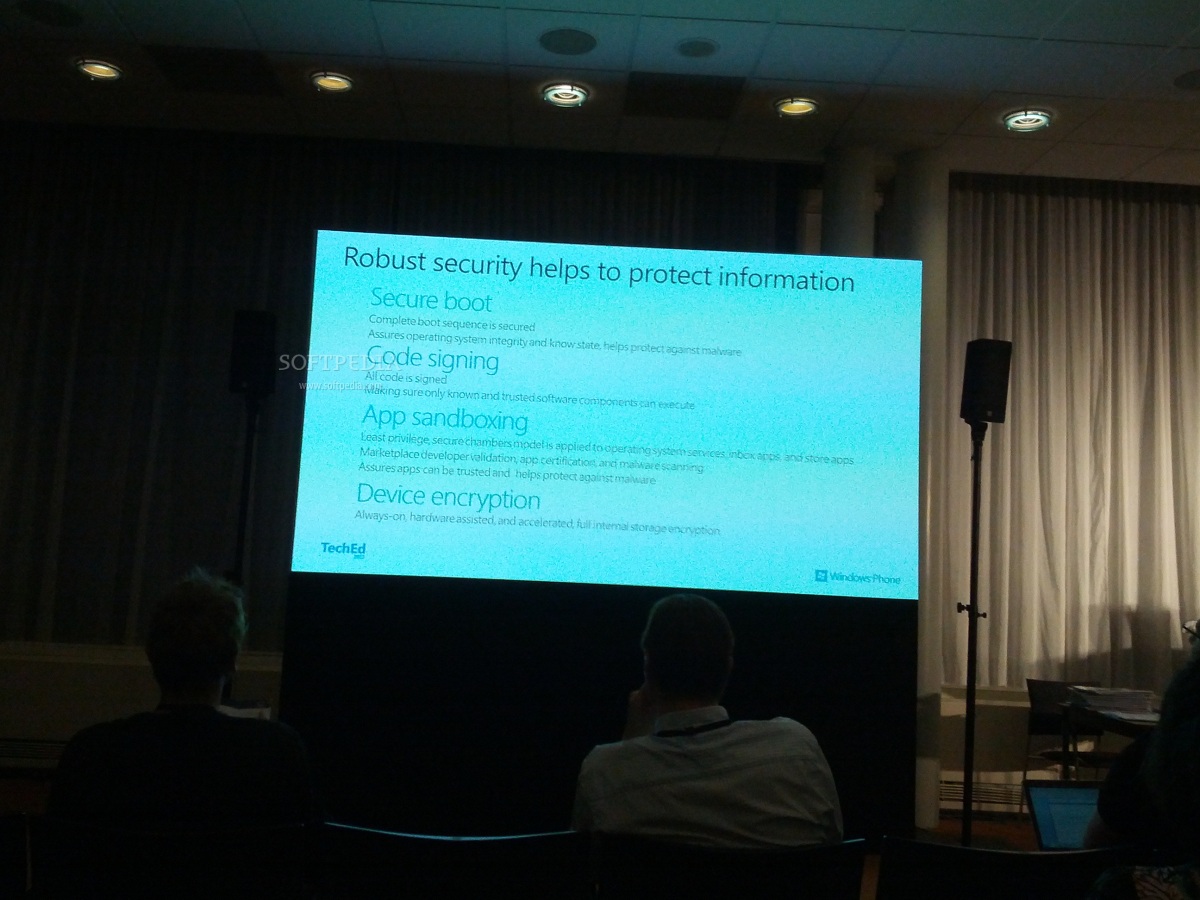
The same as Windows 8, Windows Phone 8 was built from the ground up to provide increased security capabilities to its users.
The platform, set to become commercially available sometime in the fourth quarter of the current year, will provide increased device and application management capabilities as well, to offer better user experience and make it fit for use in corporate environments.
When it comes to the security of Windows Phone 8, the phone itself will be used for the management process, and not a remote server, Alan Meeus, Senior Technical Product Manager, Windows Phone Division, Microsoft, explains.
The two platforms share a common core, which makes the secure boot integration possible, and which also ensures that the phone will come with support for a wider range of peripherals, and that it would enable faster development of different form factors too.
 |
However, common features are there, including the secure boot that Windows 8 was long touted to offer, Alan Meeus explains.
Thus, Microsoft is ensuring that only code that has been completely signed to run on the mobile platform is accepted on the device.
Moreover, the platform comes with changes in the manner in which it handles applications. Each software will have its own sandbox to run into, which isolates it from interaction with other applications on the handset.
 |
Furthermore, Windows Phone 8 comes with device encryption, with all data and applications stored locally being securely encrypted, resulting in far more secure smartphones than before.
However, content on a MicroSD memory card won't be encrypted. Moreover, Alan Meeus confirmed that Windows Phone 8 won't arrive with support for allowing the installation of applications on removable memory cards.
Via: Windows Phone 8 with Windows 8-Like Security
Tidak ada komentar:
Posting Komentar